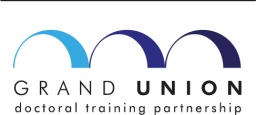Studying Migration at the Goethe University, Frankfurt
University of Oxford | Anthropology | 2020 cohort
Studying Migration at the Goethe University, Frankfurt
An Overseas Institutional Visit
In spring 2025, I carried out an overseas institutional visit (OIV) to Goethe University Frankfurt, where I was hosted by the Chair of Development Economics led by Professor Matthias Schündeln. The visit was an integral part of my doctoral training in Migration Studies at the University of Oxford. Thanks to this opportunity, I had the possibility to engage with a leading European hub in development economics research. Below I reflect on the aims, activities, outcomes, and added value of this placement.
Reasons for selecting this institution and country
Germany, and Frankfurt in particular, represents an important node in European development economics, with strong traditions in both empirical and policy-relevant research. The Chair of Development Economics at Goethe University has an established reputation for rigorous work and methodological contributions in Development Economics. Professor Schündeln and his group were therefore a natural fit for my own doctoral project, which investigates informal financial systems and household coping strategies in refugee settings.
I also considered the institutional and geographic setting. Frankfurt is home to several international organisations (e.g. ECB, GIZ) and research institutes, creating a stimulating environment for dialogue between academic work and policy application. Germany’s strong record of humanitarian engagement made it a particularly relevant country context for my work.
Aims and objectives
The OIV had three main objectives:
- Academic exchange – to receive feedback on my ongoing empirical work from scholars with complementary expertise in development economics.
- Skill development – to strengthen my methodological toolkit, particularly in the use of geodata.
- Collaboration building – to establish connections with researchers in Frankfurt who work on related themes and to explore possibilities for joint work.
Key activities
During the visit I undertook the following activities:
- Participated and supported the organization of the Conference of Development Economics hosted at Frankfurt University and organized by professor Schündeln. In this occasion I had the opportunity to connect with academics of various universities and meet with nobel prize Abhijit Banerjee.
- Presented my doctoral research project to members of the Chair of Development Economics, receiving constructive comments that directly fed into my empirical strategy.
- Participated in the development economics seminars, where I engaged with speakers and contributed to discussions.
- Conducted independent research using the chair’s facilities, including access to and a collegial research environment.
Outcomes and deliverables
The visit produced several concrete outcomes:
- I refined two of my thesis chapters on the impacts of aid cuts and aid delays on refugee households and markets.
- I strengthened my academic network, establishing ongoing contact with researchers working on similar topics.
At the time of writing, the two papers of my thesis have been published as working papers where the important contribution of Prof. Schündeln is acknowledged.
Training undertaken
I benefited from informal but targeted training on quantitative methods through close interaction with postdocs and PhD students at the chair.
Benefits of the knowledge exchange
For my doctorate:
The visit materially advanced my empirical chapters, improved the technical rigour of my econometric work, and broadened the scholarly perspectives I can draw on. The constructive critique I received has been integrated into my thesis.
For my professional and personal development:
The OIV expanded my professional network in European development economics, positioning me better for future collaborations and postdoctoral opportunities. On a personal level, the experience of adapting to a different academic culture strengthened my confidence in presenting and defending my work to new audiences.
For the host institution:
My research focus on refugee economies offered the Frankfurt group insights into a setting less central to their portfolio, creating opportunities for cross-fertilisation. I also contributed actively to their workshops and seminars, enriching discussions with perspectives from migration studies
Unexpected challenges
A minor challenge was linguistic: while seminars were in English, some administrative and social interactions were in German. I managed by preparing basic phrases and relying on the generous support of colleagues.
Advice for other students
My main advice is to approach such visits with clear objectives but also openness to unexpected opportunities. Actively scheduling meetings and engaging in informal exchanges is crucial, as many valuable insights arise outside formal seminars. Finally, prepare for administrative differences (e.g. visa requirements, housing logistics) well in advance to minimisestress and maximise academic gains.
Conclusion
Overall, my OIV at Goethe University Frankfurt was highly successful. It advanced my doctoral research, deepened my methodological skills, and opened new collaborative avenues. The placement also strengthened my confidence in navigating diverse academic environments. I am grateful to Professor Schündeln and his team for their generous hosting, and I consider this experience a cornerstone of my doctoral training.



